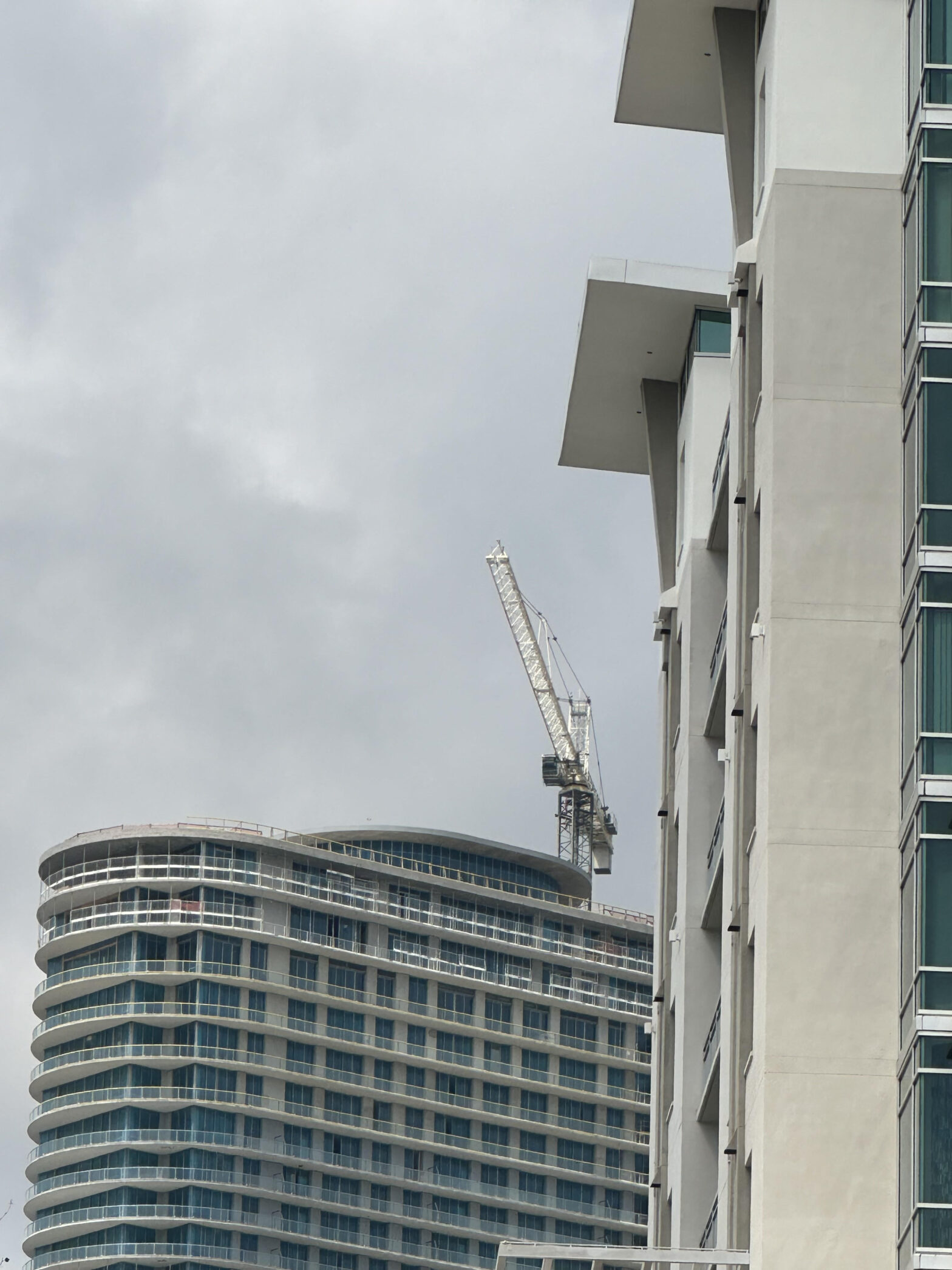By John Mancini
Following the destruction of the Tampa Bay Times building, officials in St. Petersburg have finally had enough of not being able to regulate their own laws and rules regarding hoisting safety equipment.
St. Petersburg Sen. Darryl Rouson and Rep. Lindsay Cross have filed a bill demanding the state of Florida allow the city to make its own laws regarding hoisting safety equipment.
“This bill is looking at removing the preemption so that local governments, who are the ones that are interacting with their residents and their businesses daily, as well as being the frontline for trying to keep their community safe can have those conversations with the construction companies and request that cranes be taken down if they are in imminent danger,” Cross said.
Hurricane Milton barreled through St. Petersburg in October 2024, bringing winds over 100 mph to the city. The power of Milton’s winds led to a construction crane crashing through the building that housed the Tampa Bay Times, causing significant damage.
The damage done forced the Tampa Bay Times to subsequently relocate to the Poynter Institute building.
Tampa Bay Times reporter Ian Hodgson said he was one of the first people to arrive at the accident when he was on a go team with his colleague.
“It was scary when we got there,” Hodgson said. “It was still dark out. There were no police barricades set up and the police haven’t even been dispatched to the location yet. We could see what looked like sparks or a fire in the building. The air smelled a little bit like gas. We got some photos, and we quickly got out of there, it was obviously not a safe place to be.”
Hodgson said he called the Tampa Bay Times his home for a few years now, which was why he was emotional when he saw his place of work was destroyed.
“That was the Tampa Bay Times home,” he said. “It was where a lot of us spent a lot of our time. Imagine if you came home and saw the roof ripped off, you would have similar emotions.”
Representatives in cities like St. Petersburg and Miami need to have the power to put safety regulations in place regarding hoisting equipment, Cross said. Miami-Dade County had a similar resolution proposed this year, also requesting the repealing of preemption regarding hoisting equipment.
“When residents start freaking out, rightfully so, [saying] ‘what happened? How did you let this happen?’ it’s not always effective for a city or county to be like ‘sorry it’s the state’s problem not ours, ’” Sen. Jason Pizzo said.
The hurricane and ongoing struggles with the preemption laws led to Cross and Rouson filing Senate Bill 346 and House Bill 6009 back in January, which called for the “removal of provisions preempting to the state the certain regulation of hoisting equipment.”
Rouson addressed the purpose of the bill on March 12 at the Senate Committee Meeting.
“This bill represents a proactive step towards empowering local governments to safeguard their communities by allowing them to implement appropriate regulations for hoisting equipment, thereby enhancing public safety and addressing specific regional challenges,” Rouson said.
Rouson then revealed during the meeting that the city attempted to regulate and request that the crane be removed prior to the storm. However, the preemption prevented that from happening, leading to the collapse of the crane and the destruction of the Tampa Bay Times building.
According to the American National Standards Institute, there have been more than 1,000 crane accidents across the globe between the years 2000 and 2010 that have resulted in over 700 deaths with the primary contributing cause being wind.
“Since we have storms that are becoming stronger, we need to be looking at if the cranes that are being used can withstand those levels of wind [110 to 120 mph],” Cross said. “There may be a need for the manufacturing industry to make improvements in the way they are designing and manufacturing pieces of hoisting equipment so they can withstand the conditions that have already seen.”
According to Florida-Cranes101, a website that provides crane safety training and regulations, Florida has no licensing requirements to operate a crane. Operators must obtain a nationally accredited license that meets the conditions of the Occupational Safety and Health Administration.
Pizzo said he felt the OSHA laws regarding the state are “overly inattentive.”
“In an agency, it’s hard to get local help and consideration from local buildings and local issues when the control is entirely within the agency that only has a few people in the area on the ground and its headquarters is in Tallahassee,” he said.
Pizzo also said that certain laws and regulations should be left to the state while others should be left to the county. For example, zoning and lot size should be regulated by the city while countywide services should be regulated by counties.
“I think the federal government is not as nimble as we can be at the state or the local level, and there are more opportunities for interaction in being proactive at the local level because our local leaders know where the problems are,” Pizzo said. “They are the ones that are interfacing with the residents, with our constituents, trying to help them to be prepared in anticipation of natural disasters, making sure that the cities and the counties are doing everything they can to communicate with their residents and businesses.”
Cross emphasized why it is important for cities to be able to regulate their own laws regarding crane safety, especially during a major storm.
“It’s not the federal government that you’re communicating with when there is a storm,” Cross said. “You’re talking with your mayor, your city council or your local state or elected officials.”
Immediately following Hurricane Milton, Florida Gov. Ron Desantis visited St. Petersburg to survey the damage done from the hurricane as well as the crane accident. Desantis said he does not believe that construction cranes need weeks’ notice to mitigate them and says that this does not need regulation but a little more “common sense.”
“Clearly common sense wasn’t enough to prevent the catastrophe that happened in Hurricane Milton, and so, I disagree with that,” Cross said. “Having common sense is not a directive to do something differently, it’s an idea.”
Press secretary for the Florida Senate Minority Office, Vincent Toranzo, said that SB 346 is on its way to the community affairs committee after going through the Regulated Industries Committee on March 12. On the other hand, HB 6009 had its first reading at the house on March 4.

